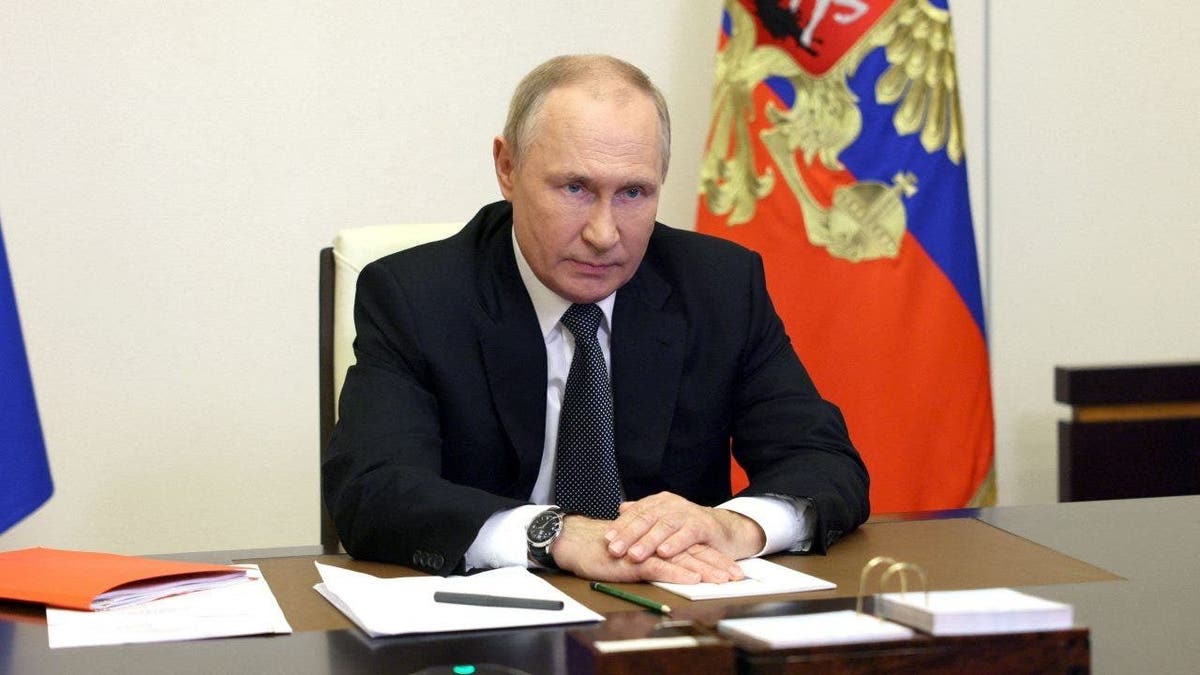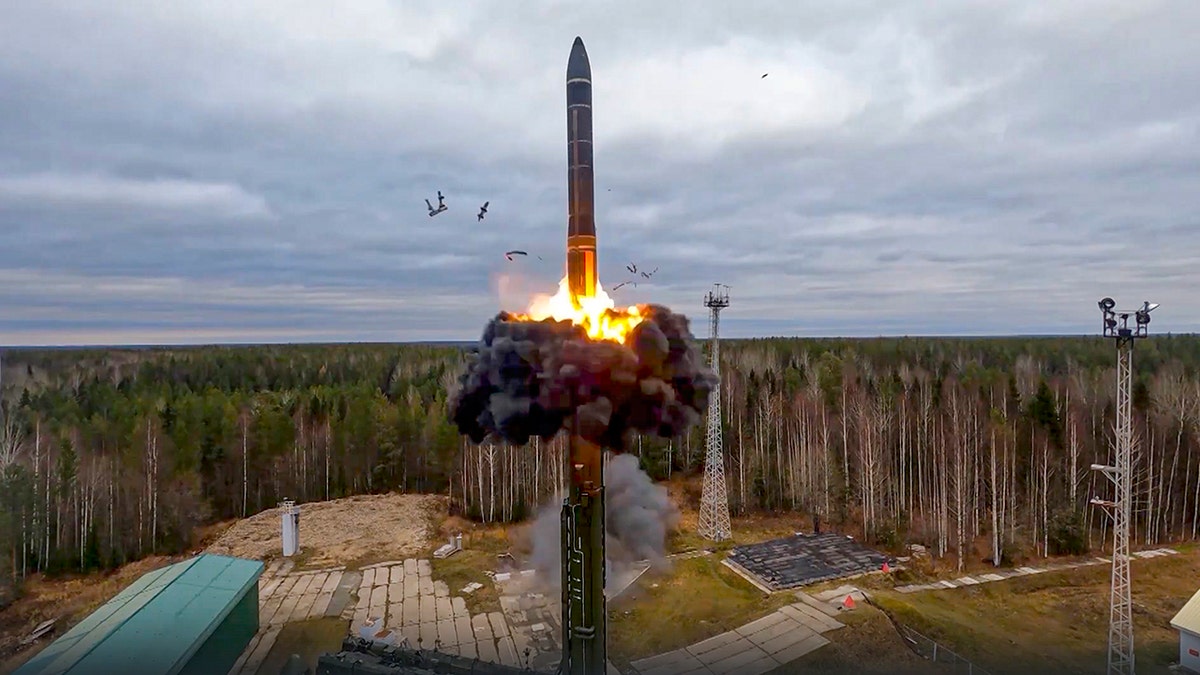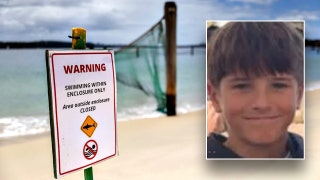Ukraine claims Russia fired 70 missiles at the country in attack
Fox News correspondent Jeff Paul reports that Russia launched a massive missile attack on Ukraine just hours after Russia claims explosions occurred at Russian bases by Ukraine drones on 'Special Report with Bret Baier.'
Russia rejected an opportunity to meet with U.S. officials to discuss a nuclear treaty set to expire soon, concerning some who say communications between the world superpowers are breaking down.
The meeting, originally set to take place in the early days of December, was expected to facilitate discussions of the expiring New START Treaty. A clause of the treaty demands that the U.S. and Russia allow officials from one nation freedom to inspect the nuclear sites and arsenals of the other.
The U.S. sought to begin talks about the continuation of this clause in a meeting from November 29 to Dec 6 in Egypt. However, New START discussions were "unilaterally postponed by the Russians," according to the Department of State.
PUTIN OPEN TO UKRAINE TALKS AFTER BIDEN SIGNALS WILLINGNESS IF RUSSIA SERIOUS ABOUT ENDING WAR
"This is about New START, a bilateral arms control treaty and making sure that both sides are complying appropriately with it," said National Security Spokesperson John Kirby. "So we look forward to being able to have that conversation and get the BCC back on the calendar."
New START is set to expire in 2026, with little to no international infrastructure for nuclear accountability in place if it lapses.
The New START treaty sets clear limits on strategic offensive arms supply for both nations, aiming to temper each nation's stockpile of nuclear weapons and discourage nuclear proliferation.

TOPSHOT - Russian President Vladimir Putin chairs a Security Council meeting via a video link at the Novo-Ogaryovo state residence outside Moscow on October 19, 2022. - Vladimir Putin on October 19 introduced martial law in Ukraine's Donetsk, Lugansk, Kherson and Zaporizhzhia regions that Moscow claims to have annexed. (Photo by Sergei ILYIN / SPUTNIK / AFP) (Photo by SERGEI ILYIN/SPUTNIK/AFP via Getty Images) (Photo by SERGEI ILYIN/SPUTNIK/AFP via Getty Images)
According to the State Department, limits on weapon stockpiles outlined in the treaty include: "700 deployed intercontinental ballistic missiles (ICBMs), deployed submarine-launched ballistic missiles (SLBMs), and deployed heavy bombers equipped for nuclear armaments; 1,550 nuclear warheads on deployed ICBMs, deployed SLBMs, and deployed heavy bombers equipped for nuclear armaments; and 800 deployed and non-deployed ICBM launchers, SLBM launchers, and heavy bombers equipped for nuclear armaments."
Arms Control Association Executive Director Daryl Kimball told the Hill that while the canceled negotiations are not a total disaster, it sets a bad precedent for breaking communication.
RUSSIA ACCUSES US OF 'DIRECT' PARTICIPATION IN UKRAINE WAR, BUT LAVROV OPEN TO TALKS

In this handout photo taken from video released by Russian Defense Ministry Press Service on Wednesday, Oct. 26, 2022, a Yars intercontinental ballistic missile is test-fired as part of Russia's nuclear drills from a launch site in Plesetsk, northwestern Russia. Russian President Vladimir Putin has monitored drills of the country's strategic nuclear forces involving multiple practice launches of ballistic and cruise missiles. The Kremlin said in a statement that all the test-fired missiles reached their designated targets. (Russian Defense Ministry Press Service via AP)
"That’s in roughly 1,200 days, which in treaty terms is not a long time. If there’s not a negotiation on some sort of replacement treaty, there will be no agreement for the first time since 1972 that limits the world’s two largest nuclear superpowers arsenals," Kymbal said. "That would make an already fraught relationship between the U.S. and Russia all the more difficult."
The Russian invasion of Ukraine has chilled conversations between the two nations across the board, though Russian President Vladimir Putin continues to signal openness to discussions — so long as they are explicitly favorable to Russian interests.

A side by side photo of President Joe Biden and Russian President Vladimir Putin. Biden said he believes Putin miscalculated Russia's ability to conquer Ukraine. (Mikhail KLIMENTYEV / Sputnik / AFP))
CLICK HERE TO GET THE FOX NEWS APP
"The president of the Russian Federation [Vladimir Putin] has always been, is and remains open to negotiations in order to ensure our interests," Kremlin spokesman Dmitry Peskov told reporters in response to comments made Thursday by President Biden, according to Reuters.
President Biden and Putin have not spoken since Russia invaded Ukraine nine months ago, and Peskov’s comments were the second time in two days that the Kremlin signaled they would be open to resuming talks with Washington.








































